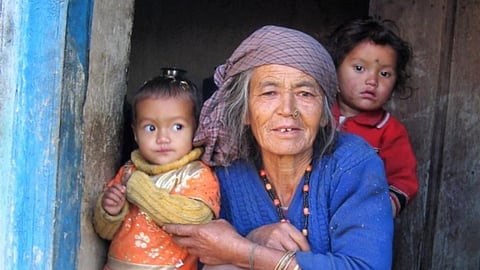
- Topics
- Feature
- Opportunities & Events
- About
- Hindi Portal
- Data
- Topics
- Feature
- Opportunities & Events
- About
- Hindi Portal
- Data

The people of Uttarakhand, like other Himalayan states, follow many unique and traditional practices to live in sync with nature. The construction of naulas to tap springs, using water to power grain grinders like gharats and to irrigate fields, transhumance, and more attest to this. They attribute sacredness to nearly every natural feature like springs and mountains and for this reason, the state is also called Devbhoomi or the abode of the Gods.
Elections for the Uttarakand legislative assembly is scheduled for February 15. The 70 assembly seats will be contested by four major parties--the Bharatiya Janata Party (BJP), the Indian National Congress (Congress), the Bahujan Samaj Party (BSP) and the Uttarakhand Kranti Dal (UKD). Are these parties attuned to the concerns of the citizens of the state?
Surprisingly, the parties are not forthcoming with their manifestos. The BSP has professed its disdain for manifestos and the other three have neither published their manifestos online nor have they responded to our repeated attempts at contacting them. But from published articles and interviews with people concerned, we, at India Water Portal, have put together what various political parties think of the environmental issues which are of grave concern to the people.
Despite this, forests are not being explicitly discussed in the manifestos of either the Congress or the BJP. Increased man-animal conflict, especially with monkeys, is being discussed by the UKD. In addition to wire fencing, they are also speaking of increasing food availability in the forests.
The rampant construction of dams, diversion tunnels, powerhouses and associated infrastructure in a geologically fragile and biodiversity-rich area had its consequences. The destruction of river-based livelihoods and traditional irrigation and social systems, the increasing incidences of landslides and decreased access to natural resources have forced the people of Uttarakhand to campaign vocally against building dams and other similar infrastructure. In recent times, dams have also sparked anger due to incidents where people have been drowned by unannounced releases of water.
Despite this, both the BJP and the Congress have come out strongly in favour of dams. The BJP manifesto talks of tapping the state's huge hydroelectric potential. Fortunately, they have also promised to give preference to smaller projects and to conserve traditional water sources.
While not discussed in the manifestos, both the BJP and the Congress have been vocal against the Ecologically-Sensitive Zone notification which applies to the first 135 kilometres of the Bhagirathi valley convincing the locals that it will halt their lives and hamper development. They have campaigned to open up the valley for more hydroelectric projects (HEP) and commercial riverbed mining. It is unlikely that this stand has been changed.
The contesting parties are entirely at odds with these needs. The Congress has taken a very narrow and limited approach to disaster management with its promise of five aapda mitras or the youth trained in rescue in each village. The BJP, on the other hand, has restricted itself to a vague "new relief and rehab policy".
The men and women of Uttarakhand have often taken control of their domestic water needs with great success. Medical care for the elderly and education for kids, however, have proven to be bigger challenges. The UKD appears to be addressing these issues with their focus on education and health care. Senior leader B.D. Raturi says, “The main motto of the UKD is to provide best education and health facility to all. We will open new multi-speciality hospitals and fill all the vacant posts of doctors in government hospitals. We will assure 30 percent reservation for local students in every private education institution.”
The BJP promises several measures including free laptops and smartphones, free education till post-graduation for girls from economically weaker sections, free wi-fi connectivity to all state-based universities and regularisation of guest teachers and those on contract. They have also voiced their desire to encourage the study of Sanskrit and astrology. The Congress have made migration a key campaign issue and have promised that “in the first three years, we will check migration and encourage reverse migration by 2022. For this, we plan to create employment opportunities, better health, electricity and education facilities besides focusing on the agriculture sector in these regions".
Across the board, a nuanced understanding of the area, its ecological dependence and the interlinkages between the ecology, livelihoods and disasters are absent. Both the BJP and the Congress, arguably the two main contesting parties, have always relied on doling out sops in Uttarakhand. It is no different this time with talks of free gadgets and services doing the rounds. It is the rivers that the parties refuse the people to access freely.